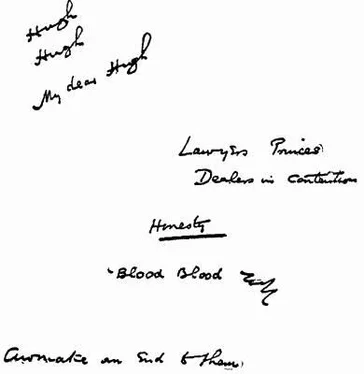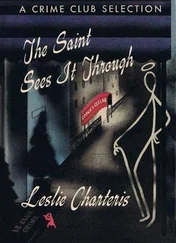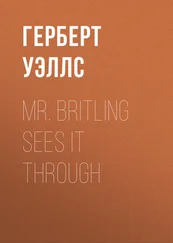Herbert Wells - Mr. Britling Sees It Through
Здесь есть возможность читать онлайн «Herbert Wells - Mr. Britling Sees It Through» весь текст электронной книги совершенно бесплатно (целиком полную версию без сокращений). В некоторых случаях можно слушать аудио, скачать через торрент в формате fb2 и присутствует краткое содержание. Жанр: Классическая проза, на английском языке. Описание произведения, (предисловие) а так же отзывы посетителей доступны на портале библиотеки ЛибКат.
- Название:Mr. Britling Sees It Through
- Автор:
- Жанр:
- Год:неизвестен
- ISBN:нет данных
- Рейтинг книги:4 / 5. Голосов: 1
-
Избранное:Добавить в избранное
- Отзывы:
-
Ваша оценка:
- 80
- 1
- 2
- 3
- 4
- 5
Mr. Britling Sees It Through: краткое содержание, описание и аннотация
Предлагаем к чтению аннотацию, описание, краткое содержание или предисловие (зависит от того, что написал сам автор книги «Mr. Britling Sees It Through»). Если вы не нашли необходимую информацию о книге — напишите в комментариях, мы постараемся отыскать её.
Mr. Britling Sees It Through — читать онлайн бесплатно полную книгу (весь текст) целиком
Ниже представлен текст книги, разбитый по страницам. Система сохранения места последней прочитанной страницы, позволяет с удобством читать онлайн бесплатно книгу «Mr. Britling Sees It Through», без необходимости каждый раз заново искать на чём Вы остановились. Поставьте закладку, и сможете в любой момент перейти на страницу, на которой закончили чтение.
Интервал:
Закладка:
On Thursday, July 23rd, the Austro-Hungarian minister at Belgrade presented his impossible ultimatum to the Serbian government, and demanded a reply within forty-eight hours. With the wisdom of retrospect we know now clearly enough what that meant. The Sarajevo crime was to be resuscitated and made an excuse for war. But nine hundred and ninety-nine Europeans out of a thousand had still no suspicion of what was happening to them. The ultimatum figured prominently in the morning papers that came to Matching's Easy on Friday, but it by no means dominated the rest of the news; Sir Edward Carson's rejection of the government proposals for Ulster was given the pride of place, and almost equally conspicuous with the Serbian news were the Caillaux trial and the storming of the St. Petersburg barricades by Cossacks. Herr Heinrich's questions at lunch time received reassuring replies.
On Saturday Sir Edward Carson was still in the central limelight, Russia had intervened and demanded more time for Serbia, and the Daily Chronicle declared the day a critical one for Europe. Dublin with bayonet charges and bullets thrust Serbia into a corner on Monday. No shots had yet been fired in the East, and the mischief in Ireland that Germany had counted on was well ahead. Sir Edward Grey was said to be working hard for peace.
"It's the cry of wolf," said Mr. Britling to Herr Heinrich.
"But at last there did come a wolf," said Herr Heinrich. "I wish I had not sent my first moneys to that Conference upon Esperanto. I feel sure it will be put off."
"See!" said Teddy very cheerfully to Herr Heinrich on Tuesday, and held up the paper, in which "The Bloodshed in Dublin" had squeezed the "War Cloud Lifting" into a quite subordinate position.
"What did we tell you?" said Mrs. Britling. "Nobody wants a European war."
But Wednesday's paper vindicated his fears. Germany had commanded Russia not to mobilise.
"Of course Russia will mobilise," said Herr Heinrich.
"Or else forever after hold her peace," said Teddy.
"And then Germany will mobilise," said Herr Heinrich, "and all my holiday will vanish. I shall have to go and mobilise too. I shall have to fight. I have my papers."
"I never thought of you as a soldier before," said Teddy.
"I have deferred my service until I have done my thesis," said Herr Heinrich. "Now all that will be—Piff! And my thesis three-quarters finished."
"That is serious," said Teddy.
" Verdammte Dummheit! " said Herr Heinrich. "Why do they do such things?"
On Thursday, the 30th of July, Caillaux, Carson, strikes, and all the common topics of life had been swept out of the front page of the paper altogether; the stock exchanges were in a state of wild perturbation, and food prices were leaping fantastically. Austria was bombarding Belgrade, contrary to the rules of war hitherto accepted; Russia was mobilising; Mr. Asquith was, he declared, not relaxing his efforts "to do everything possible to circumscribe the area of possible conflict," and the Vienna Conference of Peace Societies was postponed. "I do not see why a conflict between Russia and Austria should involve Western Europe," said Mr. Britling. "Our concern is only for Belgium and France."
But Herr Heinrich knew better. "No," he said. "It is the war. It has come. I have heard it talked about in Germany many times. But I have never believed that it was obliged to come. Ach! It considers no one. So long as Esperanto is disregarded, all these things must be."
Friday brought photographs of the mobilisation in Vienna, and the news that Belgrade was burning. Young men in straw hats very like English or French or Belgian young men in straw hats were shown parading the streets of Vienna, carrying flags and banners portentously, blowing trumpets or waving hats and shouting. Saturday saw all Europe mobilising, and Herr Heinrich upon Teddy's bicycle in wild pursuit of evening papers at the junction. Mobilisation and the emotions of Herr Heinrich now became the central facts of the Dower House situation. The two younger Britlings mobilised with great vigour upon the playroom floor. The elder had one hundred and ninety toy soldiers with a considerable equipment of guns and wagons; the younger had a force of a hundred and twenty-three, not counting three railway porters (with trucks complete), a policeman, five civilians and two ladies. Also they made a number of British and German flags out of paper. But as neither would allow his troops to be any existing foreign army, they agreed to be Redland and Blueland, according to the colour of their prevailing uniforms. Meanwhile Herr Heinrich confessed almost promiscuously the complication of his distresses by a hitherto unexpected emotional interest in the daughter of the village publican. She was a placid receptive young woman named Maud Hickson, on whom the young man had, it seemed, imposed the more poetical name of Marguerite.
"Often we have spoken together, oh yes, often," he assured Mrs. Britling. "And now it must all end. She loves flowers, she loves birds. She is most sweet and innocent. I have taught her many words in German and several times I have tried to draw her in pencil, and now I must go away and never see her any more."
His implicit appeal to the whole literature of Teutonic romanticism disarmed Mrs. Britling's objection that he had no business whatever to know the young woman at all.
"Also," cried Herr Heinrich, facing another aspect of his distresses, "how am I to pack my things? Since I have been here I have bought many things, many books, and two pairs of white flannel trousers and some shirts and a tin instrument that I cannot work, for developing privately Kodak films. All this must go into my little portmanteau. And it will not go into my little portmanteau!
"And there is Billy! Who will now go on with the education of Billy?"
The hands of fate paused not for Herr Heinrich's embarrassments and distresses. He fretted from his room downstairs and back to his room, he went out upon mysterious and futile errands towards the village inn, he prowled about the garden. His head and face grew pinker and pinker; his eyes were flushed and distressed. Everybody sought to say and do kind and reassuring things to him.
"Ach!" he said to Teddy; "you are a civilian. You live in a free country. It is not your war. You can be amused at it...."
But then Teddy was amused at everything.
Something but very dimly apprehended at Matching's Easy, something methodical and compelling away in London, seemed to be fumbling and feeling after Herr Heinrich, and Herr Heinrich it appeared was responding. Sunday's post brought the decision.
"I have to go," he said. "I must go right up to London to-day. To an address in Bloomsbury. Then they will tell me how to go to Germany. I must pack and I must get the taxi-cab from the junction and I must go. Why are there no trains on the branch line on Sundays for me to go by it?"
At lunch he talked politics. "I am entirely opposed to the war," he said. "I am entirely opposed to any war."
"Then why go?" asked Mr. Britling. "Stay here with us. We all like you. Stay here and do not answer your mobilisation summons."
"But then I shall lose all my country. I shall lose my papers. I shall be outcast. I must go."
"I suppose a man should go with his own country," Mr. Britling reflected.
"If there was only one language in all the world, none of such things would happen," Herr Heinrich declared. "There would be no English, no Germans, no Russians."
"Just Esperantists," said Teddy.
"Or Idoists," said Herr Heinrich. "I am not convinced of which. In some ways Ido is much better."
"Perhaps there would have to be a war between Ido and Esperanto to settle it," said Teddy.
"Who shall we play skat with when you have gone?" asked Mrs. Britling.
Читать дальшеИнтервал:
Закладка:
Похожие книги на «Mr. Britling Sees It Through»
Представляем Вашему вниманию похожие книги на «Mr. Britling Sees It Through» списком для выбора. Мы отобрали схожую по названию и смыслу литературу в надежде предоставить читателям больше вариантов отыскать новые, интересные, ещё непрочитанные произведения.
Обсуждение, отзывы о книге «Mr. Britling Sees It Through» и просто собственные мнения читателей. Оставьте ваши комментарии, напишите, что Вы думаете о произведении, его смысле или главных героях. Укажите что конкретно понравилось, а что нет, и почему Вы так считаете.






